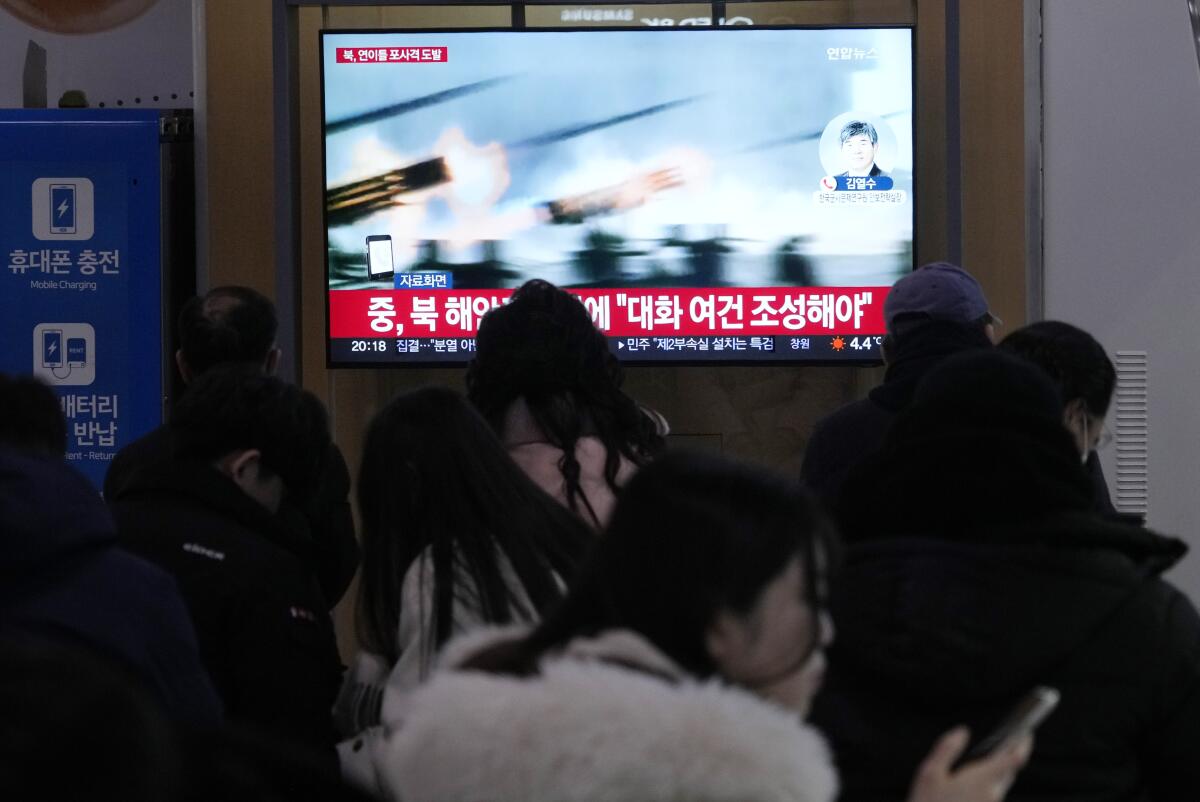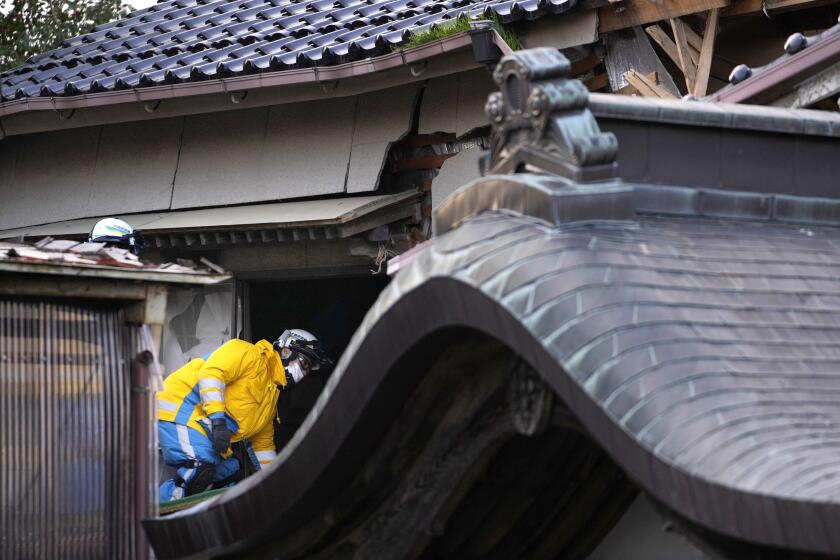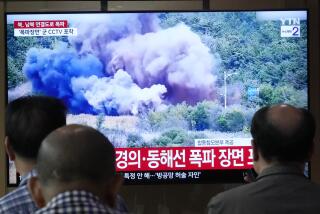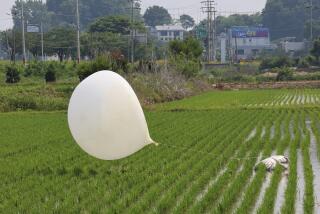South Korea says the North has again fired artillery shells near their sea border

SEOUL — North Korea conducted a new round of artillery drills near the disputed sea boundary with South Korea on Saturday, officials in Seoul said, a day after the North’s similar exercises prompted the South to respond with its own firing drills in the same area.
Pyongyang’s back-to-back firing exercises come after North Korean leader Kim Jong Un repeatedly called for stronger war readiness to counter what he called deepening confrontation led by the U.S.
Experts say North Korea is likely to continue its provocative run of weapons tests to boost its leverage in potential future negotiations with Washington as the U.S. heads into the November election.
South Korea’s Joint Chiefs of Staff said in a statement that the North fired more than 60 rounds into the waters north of the western sea boundary on Saturday afternoon.
The Joint Chiefs said Seoul strongly urges Pyongyang to halt acts that heighten tensions. It said it will take corresponding military steps if North Korea continues artillery drills that pose a threat to South Korean nationals.
The statement didn’t say whether the South would respond with its own drills. South Korean media reported that Seoul didn’t stage firing exercises, after determining the direction of North Korean shells fired Saturday was less provocative than on Friday.
A woman in her 90s has been pulled alive from a collapsed house in western Japan, 124 hours after a major quake slammed the region.
The Koreas’ firing exercises were a violation of a 2018 inter-Korean agreement that was meant to ease front-line military tensions. Struck during a brief period of rapprochement, the accord calls for a halt in live-fire exercises and aerial surveillance in front-line buffer and no-fly zones.
But rising animosities over the North’s first military spy satellite launch in November has left the military agreement in tatters, with both Koreas taking steps to breach the deal.
On Friday, North Korea used coast artillery systems to fire about 200 rounds, also north of the sea boundary, in its first maritime firing exercise in the buffer zone in about a year.
In response, South Korea’s Defense Ministry said troops on two border islands fired artillery rounds south of the sea boundary. Local media said South Korea fired 400 rounds.
Ahead of the South Korean drills, authorities in Seoul asked residents on five major islands near the sea boundary to evacuate to safe places because of worries the North would fire back. The evacuation order was lifted a few hours later.
North Korea’s military said later Friday that its drills were in response to South Korea’s military training earlier in the week. It warned that it would launch “tough counteraction on an unprecedented level” if Seoul provokes it.
The Koreas’ poorly marked western sea boundary was the site of bloody naval skirmishes between the Koreas in 1999, 2002 and 2009.
The torpedoing of a South Korean warship blamed on the North killed 46 South Korean sailors in March 2010, and the North’s artillery bombardment of Yeonpyeong Island killed four South Koreans in November 2010.
In a recent key ruling party meeting, Kim fired off fierce, derisive rhetoric against South Korea, saying it must not be considered as a partner for reconciliation or unification. He ordered the military to use all available means — including nuclear weapons — to conquer South Korea in the event of a conflict.
Since 2022, North Korea has conducted more than 100 missile tests, many of them nuclear-capable weapons targeting the U.S. mainland and South Korea. Washington and Seoul have responded by expanding their military training, which Pyongyang calls an invasion rehearsal.
More to Read
Sign up for Essential California
The most important California stories and recommendations in your inbox every morning.
You may occasionally receive promotional content from the Los Angeles Times.











